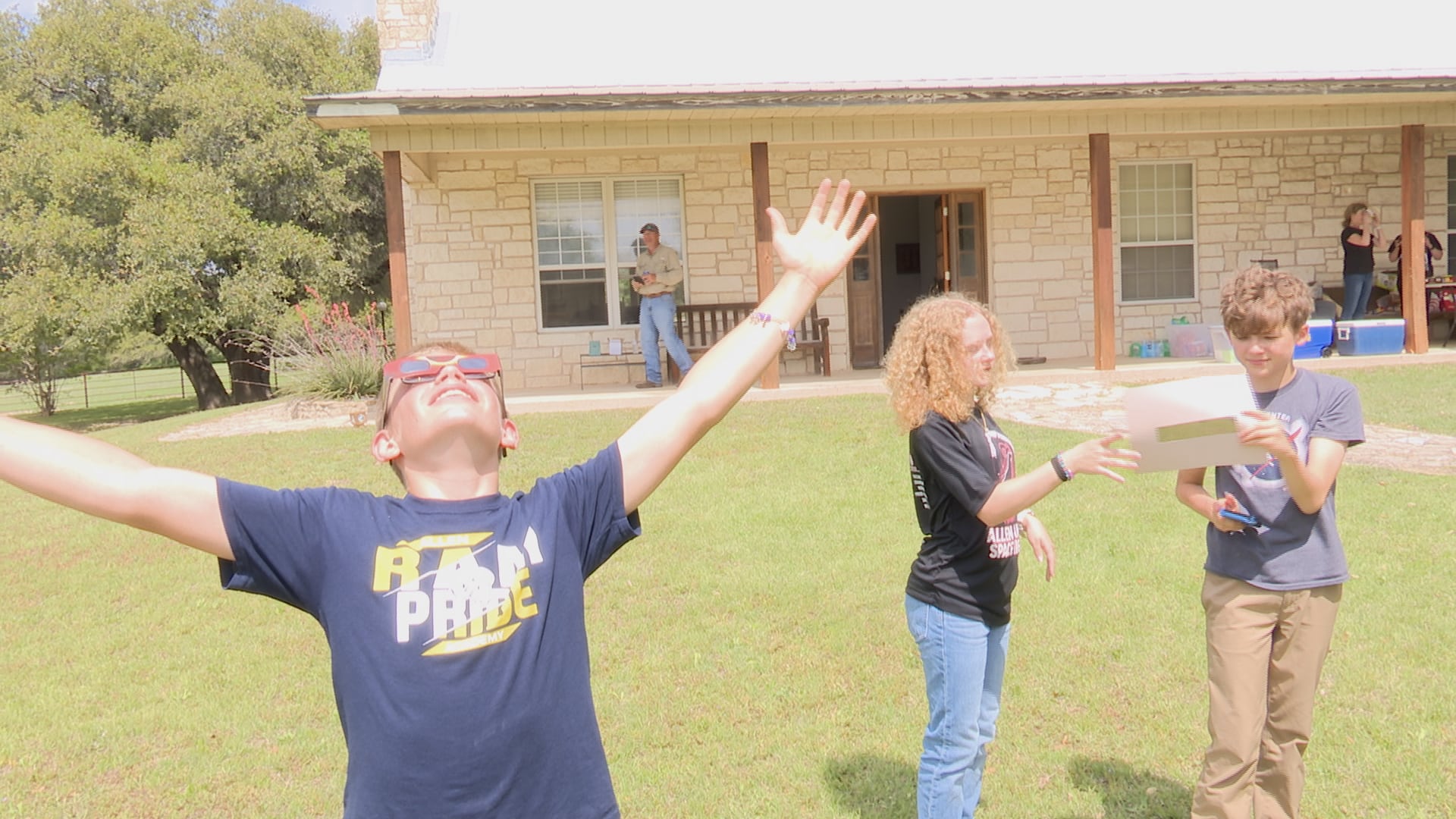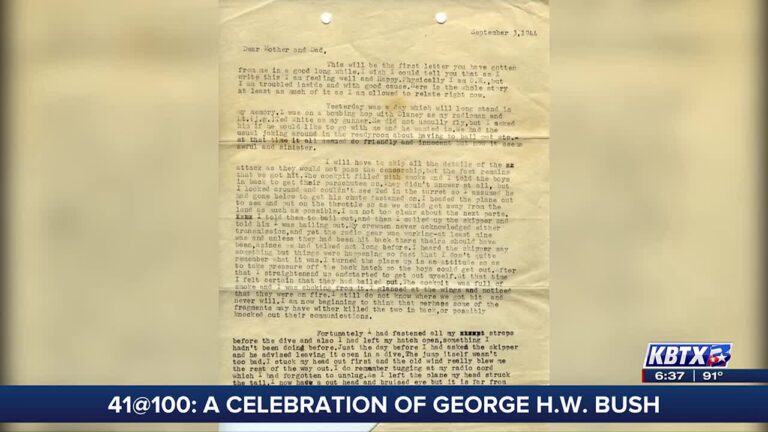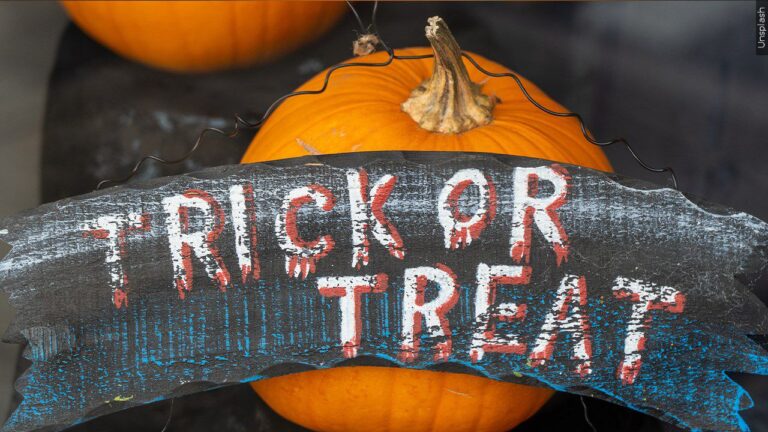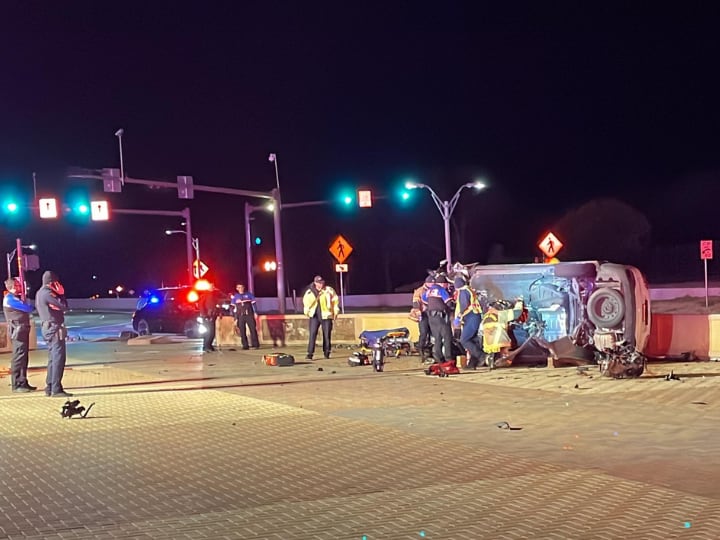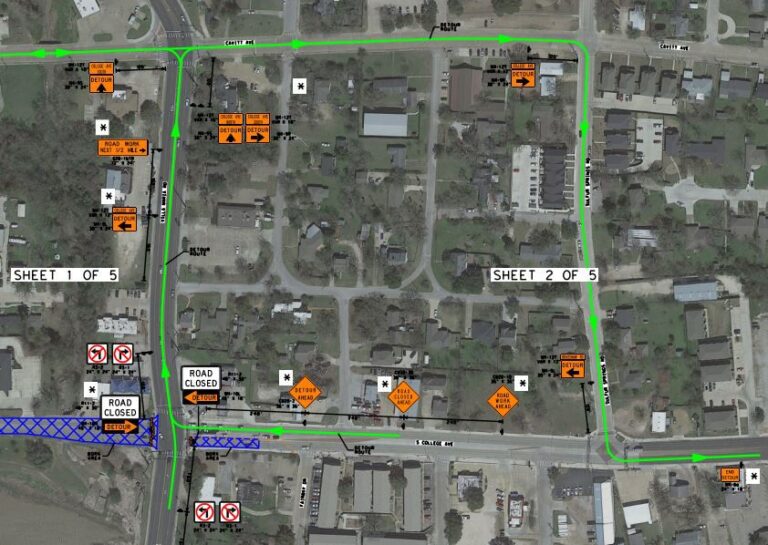Student scientists across the nation travel to totality for eclipse research
MERIDIAN, Texas (KBTX) – Scientists and scholars traveled from across the nation to view and research Monday’s solar eclipse along the path of totality.
The clouds parted just in time for a view of the eclipse, giving students the chance to fully witness what many described as a once-in-a-lifetime opportunity.
Three main groups made the trek out to a ranch in Meridian for the eclipse; Allen Academy students, undergraduate and graduate students from the University of Texas in Austin and high school NASA interns.
One of those NASA interns, Nicholas Mendez, came to the ranch from Caldwell, Idaho. He’s part of a project tracking how the eclipse affects the atmosphere.The internship is a highly competitive program, one he said has helped prepare him for his next steps.
“I know that going into the future and going into college, especially with an interest in aerospace engineering but then also leadership, I’m really prepared for it,” Mendez said.
Younger students watched a team from UT Austin release a weather balloon into the atmosphere. They’re participating in the Nationwide Eclipse Ballooning Project, with multiple balloons being released from different areas along the path of totality.
One undergraduate student said it’s a big step in learning more about a newer field of science.
“I’m proud that we’re contributing to what is still a pretty new field of research because scientists can only do so much during an eclipse,” senior Jonathan Williams said.
Science took many different forms during the eclipse, giving students the chance to take their learning outside the classroom.
The group of Allen Academy students were conducting their own research and contributing to a NASA citizen science project relating to animal behavior during the eclipse. They also tracked how environmental data, such as temperature and UV radiation, changed as the eclipse progressed.
Eighth-grader Owen Douglass, who coded a program for the project, said his favorite way to learn is by exploring outside a traditional classroom setting. He said this experience did a lot to show him what he was capable of as a coder, while also getting to experience a total solar eclipse for the first time.
“I’m not only seeing something spectacular, something once in a lifetime, but I’m also contributing to genuine total eclipse research, and learning from it myself,” he said.
Ria Agarwal, an eighth grader at Allen Academy, tracked UV radiation levels over the course of the eclipse. Through her work, she discovered a love for aerospace engineering.
“This got me interested in designing rockets, and that’s aerospace engineering. So I might do something with that in the future,” she said.
The group of Allen Academy students spent the morning of the eclipse setting up their experiments, and watching their hard work pay off.
For Allen Academy senior Kendall Hanover, it wasn’t just a learning experience, but an otherworldly one.
“It just really didn’t feel real. Even in the minutes leading up to it, when the colors and shadows started to get weird, it just felt like I was on a different planet entirely,” Hanover said.

